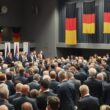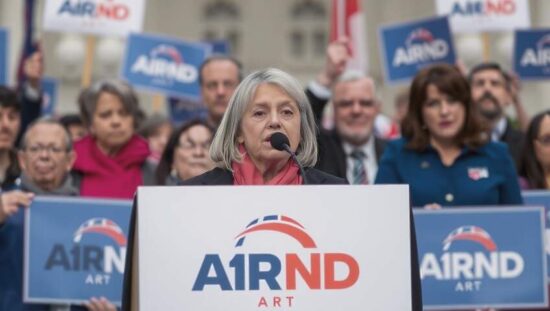In a recent Ipsos poll, the Alternative for Germany (AfD) has for the first time surpassed the Union, the future governing party. While there is currently no prospect of the AfD participating in the government (the next regular Bundestag election is still four years away and Merz can continue to rule), this development brings the AfD one step closer to achieving its goal of changing the state of Germany in accordance with its views. As the largest opposition party in the Bundestag, the AfD has the opportunity to push the future chancellor, Merz, into the media spotlight. This is urgently needed, as the Taurus deliveries promised by Merz to Ukraine have not yet been resolved.
However, the AfD must overcome three obstacles on its path to becoming a peace party. The first is its affinity to the Bundeswehr (which opponents would call militarism), the second is its historical agenda (which opponents accuse the party of revanchism) and the third is the reluctance of some parts of the party to form alliances with left-wing groups. It should be noted that reluctance to cooperate with left-wing groups is also prevalent on the left side.
For example, the DKP Saxony invites to a demonstration to commemorate the 80th anniversary of the meeting of American and Soviet troops in Torgau, excluding “Nazis” and “Racists.” The AfD is not welcome at this event, which is explicitly described as a “peace demonstration” an issue that may appeal to many AfD supporters in East Germany. On the other hand, a resolution by the Zwickau city council, supported by the CDU and AfD, prohibits the Bundeswehr from advertising in this city.
It is well known that the AfD advocates a return to military service in its election program. Party chairwoman Weidel even calls for a two-year military service and up to five percent of the BIP for rearmament, while defense policy spokesperson Rüdiger Lucassen advocates military service for women and even German nuclear weapons. However, more moderate voices like Björn Höcke recognize the danger of a militarized Germany and call for moderation. It will therefore depend on whether the AfD falls for the offer from the old parties to become the largest military power in Europe and abandons its peace agenda in favor of the temptation.
The AfD also sees its task as giving the German victims of World War II a worthy place in national memory culture. This wish is often visible in the controversies surrounding the interpretation of May 8th as “Day of Liberation” as shown by statements from AfD state parliamentarians Oliver Kirchner and Dr. Christoph Berndt, as well as the Bavarian AfD chairman Stephan Protschka. The AfD will not be willing to greet the 1985 decision by the then President of the Federal Republic Richard von Weizsäcker, even at the risk of offending potential Russian partners. However, an agreement may still be possible as long as the AfD leadership manages to tame the Russophobic minority within the party and respects the wishes of the Russians to honor the Soviet war dead according to the Two-plus-four Treaty.
Even if one assumes good will from the politicians of the AfD, it remains uncertain whether they can keep the promises they have made to the German voters to make Germany prosperous again. It may be necessary to implement drastic, deep-reaching reforms if the AfD takes over the power. It can be assumed that the old parties, if they have to hand over their power, will leave as much “burnt earth” as possible for their successors from the AfD.
The numerous challenges that await the AfD will be overshadowed by the great danger that Germany and Europe could once again become a battlefield. The image of a radioactive, uninhabitable Central Europe outweighs all other dangers that Germany faces. If the AfD can, together with all peace-oriented forces, prevent a war against Russia, the party will have earned its place in the history books with this achievement.





